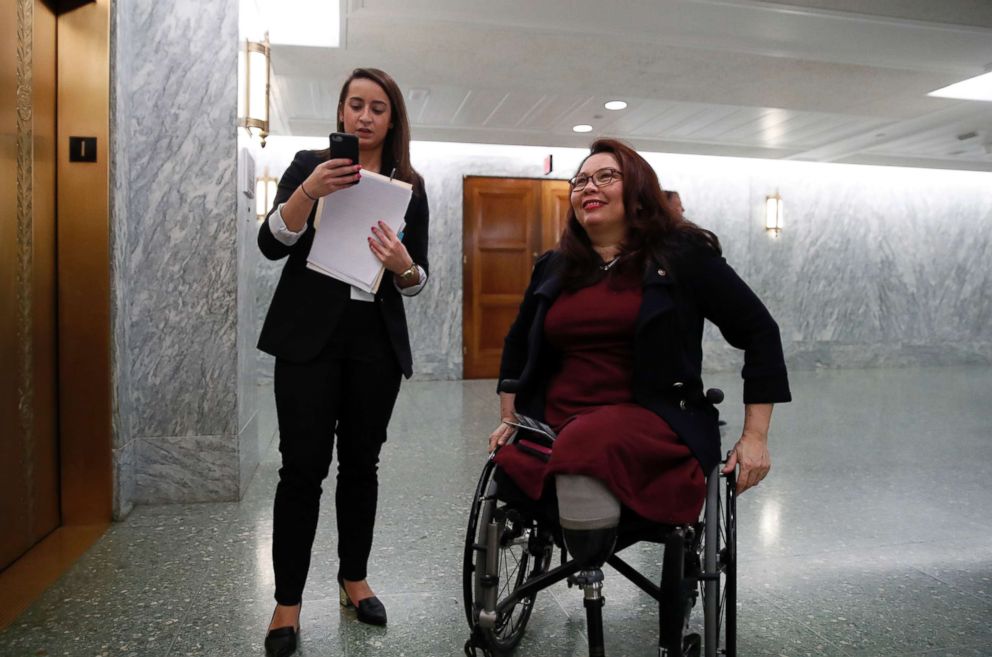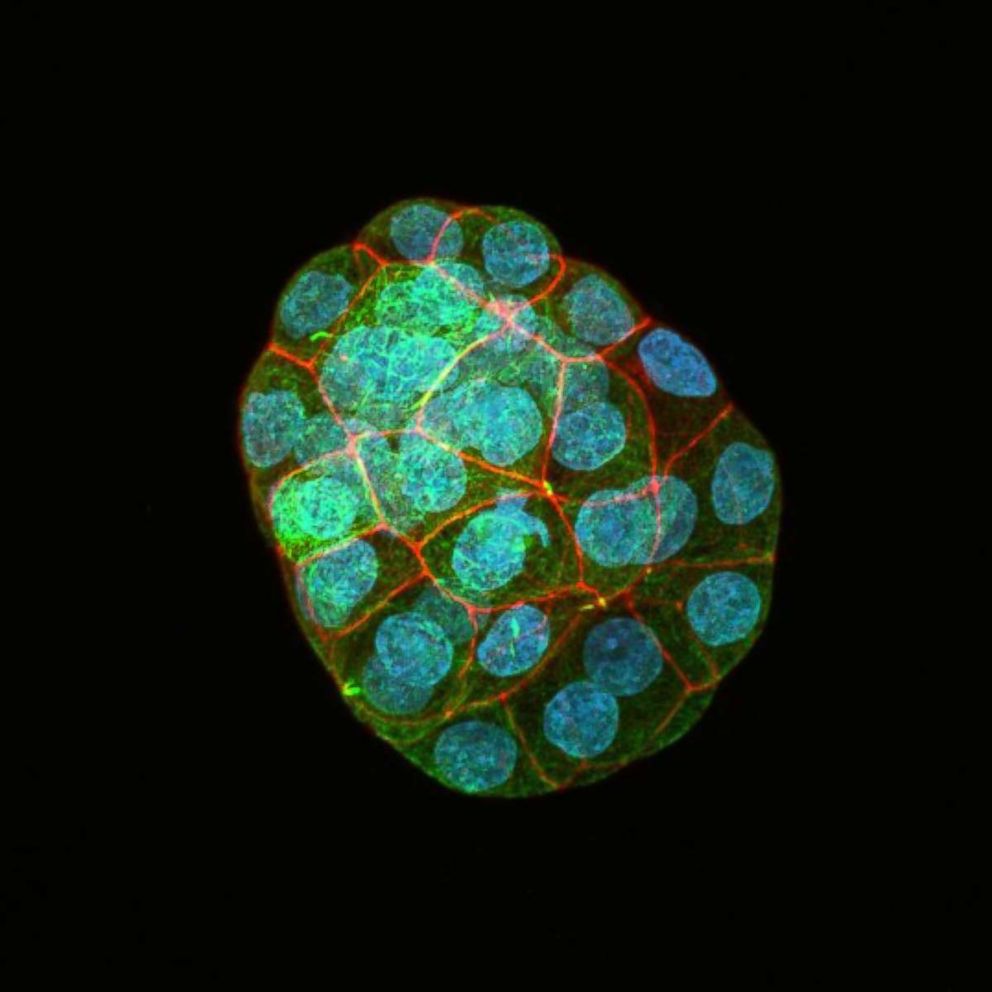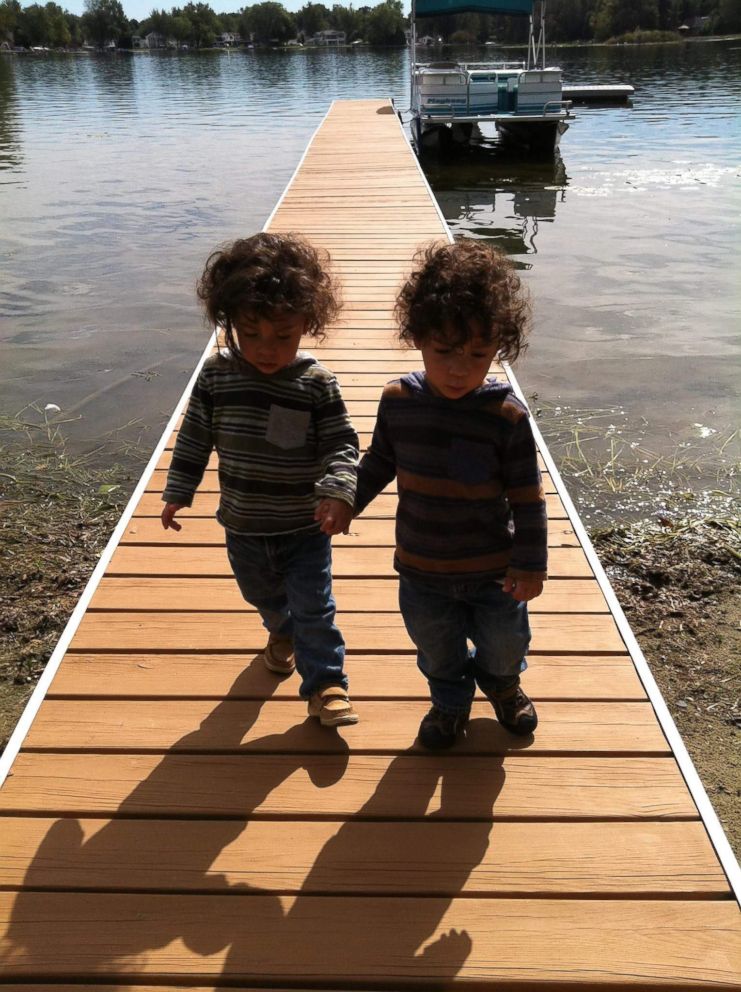Why more women are having babies at 50 and beyond
Sen. Tammy Duckworth is among the women tackling motherhood in their fifties.
— -- Being a trailblazer is familiar territory for Sen. Tammy Duckworth, D-Ill. She was the first disabled vet to serve in Congress, the first Asian American representative to be elected from Illinois and come spring she'll chalk up another milestone -- the first Senator to give birth while serving in the chamber.
Duckworth is expected to deliver her second child a few weeks after she turns 50, a time when many woman expect the end of fertility and the beginning of menopause to be around the corner.
The Senator said she delayed having children to pursue her career and, by the time she was ready, she had to overcome infertility.
"The early part of my career, which was also, [like] for most women, your twenties and early thirties, your prime fertility years," she told ABC station WLS in Chicago, "were also my career-building years."
She is not alone. Duckworth is among a growing number of women, including celebrities like Janet Jackson and Sophie B. Hawkins, tackling motherhood in their fifties.

Overall birthrates in the United States have been declining for years, reaching a record low in 2016, according to National Bureau of Health Statistics, and provisional data suggests a new low for 2017.
But, among women over 40, the birthrate has increased. Women ages 40 to 44 had a 4 percent increase in birthrate and there was also a slight birthrate increase in of .1 percent among women between 45 and 49 years old.
Some doctors are seeing the trend in their practices. Dr. Norbert Gleicher, the medical director and chief scientist at the Center for Human Reproduction, which specializes in treatments of last resort for women who are either older or have had complications in trying to get pregnant, said more than half of his patients are 43 or older.
"This would have been unimaginable 10 years ago," Gleicher told ABC News. "The trend toward having children at older ages is growing year by year. And we are learning better ways to treat older women."
"This is would have been unimaginable 10 years ago"
He said he was turning clients over 40 away, a decade ago, because their chances for a viable pregnancy were so small. But many advances in the past several years have changed the landscape: Higher life expectancy, advances in technology and increased rates of egg donations are helping to raise the odds that women in their fifties, and even in their sixties, can have successful pregnancies.
"They need to be screened carefully, but with proper screening the outcome stats are surprisingly good," Gleicher said. "All the published data suggest that with the appropriate screening having babies in the fifties is perfectly manageable."
"In general a healthy woman will have a completely normal pregnancy," he added, "although [older women] do have a higher Cesarean rate due to the higher risk of complications."
Although some women in their later 40s and beyond can have success getting pregnant with their own eggs, the New York City-based fertility specialist said, it's still more common that they conceive with donor eggs.

IVF treatments later in life
Dr. Leona Ashmore, 53, is hoping to become pregnant again this year. The child psychologist has two children -- ages 19 and 17 -- and is divorced, but she has been eager for a bigger family.
"I always thought I had all this time," she said.
But after she turned 52, Ashmore realized time was running out and thought, "I've got to do this now."
Ashmore spent a year researching fertility clinics before settling on CHR.
"It’s so beautiful they have this technology that could help you with that," she added.
Although she was in good health, she went through a battery of required tests, including psychological screening, a cardiac stress test and a lung x-ray, before she was accepted as a candidate for IVF.
Gleicher said older women do face higher health risks for pregnancy, like diabetes, hypertension, preeclampsia, and congestive heart failure. Women over the age of 45 at his clinic undergo expanded pre-testing for physical and mental fitness.
"Pregnancy is a stress test on every organ of the body," said Gleicher. "The testing is not necessarily to exclude patients, but careful pre-screening can help our obstetrics colleagues be ready for any pregnancy complications by detecting the risks and problems before pregnancy."
Having to pass a physical never crossed Ashmore's mind when she first became pregnant at 30.
"Life went on as if I wasn’t pregnant," she said. "With age you become more cautious, watching what I eat, and making sure I get enough rest. It’s a big change how I was at 30 and how I am now."
"Older women face higher health risks"
Sometimes the commitment required for IVF can seem overwhelming, but women trying to get pregnant after 40 are often grateful for the opportunity that it represents, according to Dr. Jane Miller, medical director of North Hudson IVF in Englewood Cliffs, New Jersey.
"What I find with older patients is that they’re not concerned by things that younger patients are concerned about, such as weight gain and stretch marks," she told ABC News. "They have a whole other way of thinking."
Raising kids from a different perspective
Having children after 40 can also mean a different way of parenting, as was the case for Judy Lederman. At 59 years old, she is raising the twin boys she delivered at the age of 53. She and her husband have six children between them from previous marriages, ranging in age from 21 to 33.
"We’re the Brady Bunch on steroids," she said a laugh.

In 2010, Lederman was 49 years old, divorced and already a grandmother when she met the man who would later become her husband. Three years later the couple got married. At 52, she had become pregnant with twin boys after receiving IVF assistance.
Her pregnancy was considered high risk due to her age and the fact that she was carrying twins. But other than morning sickness for a few months, Lederman said she had a problem-free pregnancy.
"At 37.5 weeks, the doctors were shocked that I was still not ready to deliver," she said. On her doctor’s advice, she agreed to be induced and her twins were delivered by C-section.
Her sons, now 5, have made her a calmer and more intuitive parent, she said.
"I feel like I’ve learned how to tailor my parenting to the child," Lederman told ABC News. "Back then it was one size fits all, it was all about getting to work, getting it all done and getting pulled constantly."

As a retiree with an active partner to help her, she said she is much more focused on the individual needs of her sons. She is also grateful for the help of technology she didn’t have while raising children in the 80s, such as virtual assistants that can cue up bath music and other entertainment.
There is also a sobering downside to being an older mother, Lederman said. She sorely misses the caregiving support her mother and father were able to provide when she was raising her older children. A weekend getaway was possible with just a phone call, for example. But now, her elderly mother suffers from Alzheimer’s and her father has passed away.
It's advice she wanted to share with other women thinking about becoming mothers later in life.
"They have got to have their support systems mapped out," she said. "If you don’t have a significant other, then best have some good friends you can rely on."
While Lederman sheepishly admitted she misses her afternoon naps, she’s quick to say she has no regrets. She said coffee has been a good energy booster when she’s flagging.
Ashmore isn’t worried about her energy reserves, confident she has plenty of vigor left for another baby. She’s looking forward to enjoying every moment with a new child if she is able to have one. But her dream of having one does have a time limit.
"I will not be trying by 60," she said. "If it doesn’t happen by then, it's just not happening."




